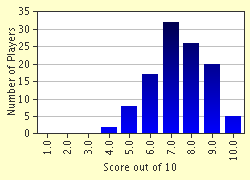Quiz Answer Key and Fun Facts
1. Opera was born in Italy in 1597. Do you know which composer is her father?
2. All operas are written only in Italian.
3. You may know that there are super- or subtitles so that you can understand what you are hearing at a live performance; but what innovative method has the Metropolitan Opera used to achieve the same purpose?
4. You know that the composer of an opera is the person responsible for the music that you are hearing; but what is the name of the person who is responsible for the accompanying lyrics?
5. All operas are overly serious and long melodramas.
6. The 3 main types of singers in an opera, in ascending order, are: the chorus, comprimario, and ________________ singers or artists.
7. When opera first began, the orchestra was onstage with the singers.
8. During the time of the castrati, these male singers sang only the female roles, since women were not allowed on the stage.
9. An aria that is interpolated or substituted for another in an opera is called a ___________ aria.
10. The house (audience's) lights have always remained off during a performance since the beginning of opera.
Source: Author
Triviasoprano
This quiz was reviewed by FunTrivia editor
ralzzz before going online.
Any errors found in FunTrivia content are routinely corrected through our feedback system.

